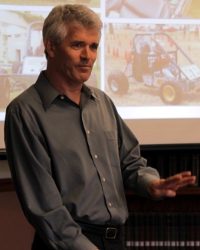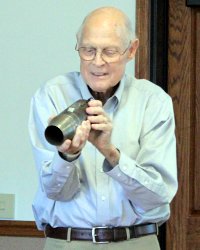- Home
-
About
 Fidelity & Excellence
Fidelity & ExcellenceThomas Aquinas College is unique among American colleges and universities, offering a faithfully Catholic education comprised entirely of the Great Books and classroom discussions.
-
A Liberating Education
 Truth Matters
Truth MattersTruth, and nothing less, sets men free; and because truth is both natural and supernatural, the College’s curriculum aims at both natural and divine wisdom.
-
A Catholic Life
 Under the Light of Faith
Under the Light of FaithThe intellectual tradition and moral teachings of the Catholic Church infuse the whole life of Thomas Aquinas College, illuminating the curriculum and the community alike.
-
Admission & Aid
 Is TAC Right for You?
Is TAC Right for You?Do you enjoy grappling with complex questions? Are you willing to engage in discussions about difficult concepts, with the truth as your ultimate goal?
-
Students & Parents
 Mind, Body & Spirit
Mind, Body & SpiritThere is always something to do at TAC — something worthwhile, something fulfilling, and something geared toward ever-greater spiritual and intellectual growth.
-
Alumni & Careers
 What Can You Do with a Liberal Education?
What Can You Do with a Liberal Education?Nothing speaks more to the versatility of the College’s academic program than the good that our alumni are doing throughout the Church and the world.
- Search
- Giving
College Hosts Talk for Students Interested in Engineering Careers
On Sunday the College’s Office of Career Advisement sponsored a talk and Q&A for students who are considering a career in engineering. Leading the discussion were two local engineers — one civil, one mechanical, with extensive civilian and military experience — who shared their wisdom about how best to apply the benefits of a Catholic liberal education in the marketplace.
Over the course of the nearly two-hour meeting, Messrs. Wallach and Kretschmer shared their wealth of experience to help the students understand the wide variety of opportunities available in their profession as well as the lifecycle of a typical engineering project. Both professionals took questions from the students, offering their assistance and networking help as needed, and stressing the compatibility of the College’s liberal arts curriculum with careers in the so-called STEM (science, technology, engineering, and mathematics) disciplines.
“I see the TAC program, which focuses on analysis to find the truth and understand basic principles, to be very complementary with the training and characteristics of a good engineer,” said Mr. Kretschmer. “The engineer must deal with facts, not emotions, in solving problems, and so focuses on truth. Engineers often form teams to discuss the facts and propose solutions in a similar process to the College’s round-table approach, and practicing engineers must hold high ethical positions to meet the requirements of finding truth.”
When evaluating young engineers, Mr. Wallach added, he cares not so much that they immediately know how to solve a problem, “but that they are willing to open up a book — actually to admit what they don’t know, and then go figure it out, and that they are asking the right questions.” Consequently, he told the students, “I think that, because of the foundation that you have, you would end up being much better engineers than a lot of engineers who learn the recipe for how two pieces fit together without appreciating the bigger picture.”
The Engineering Talk was one of several such events that the Office of Career Advisement has planned for the academic year, including September’s talk for students interested in pursuing careers in mental health and October’s Career Discernment Workshop.




